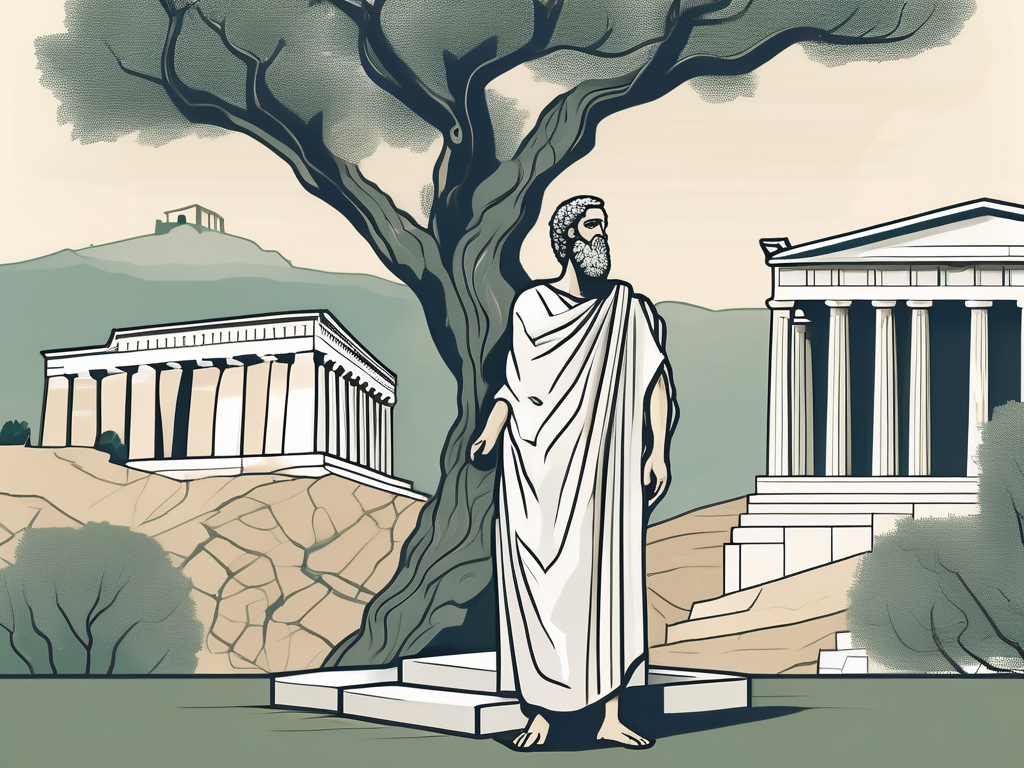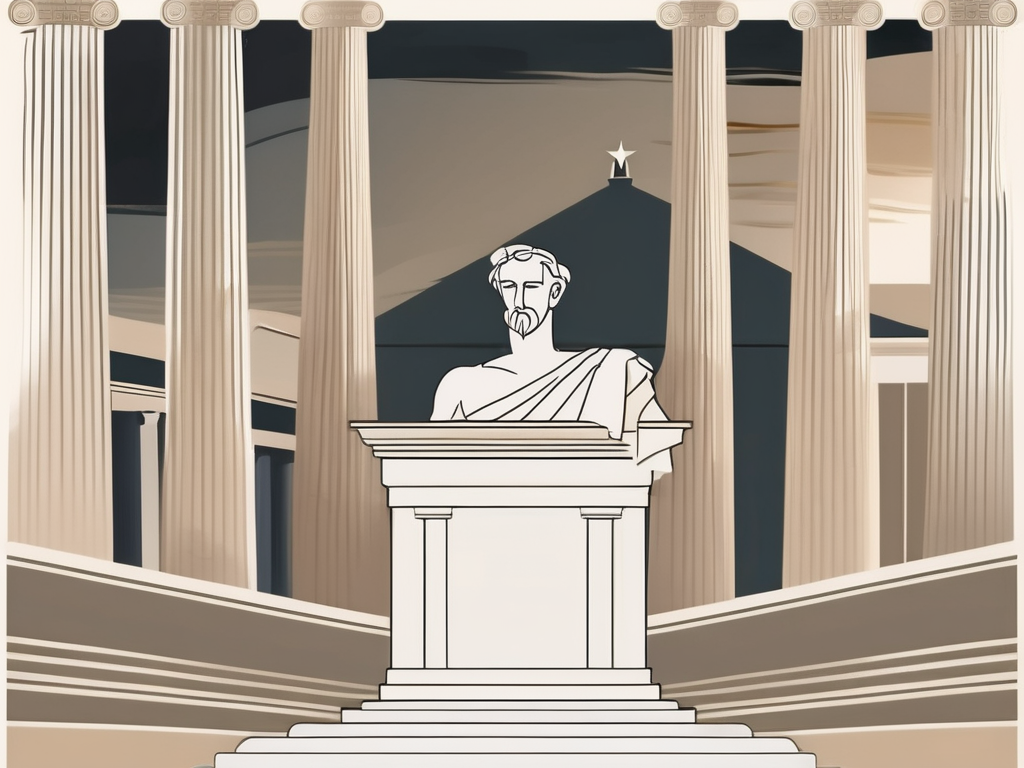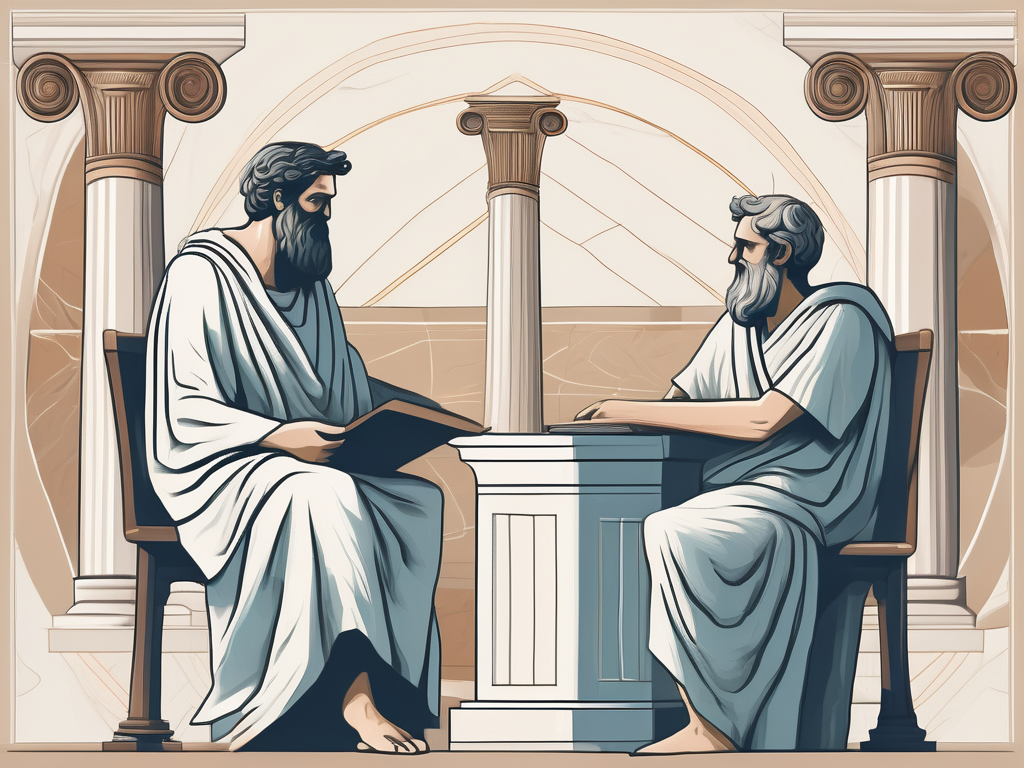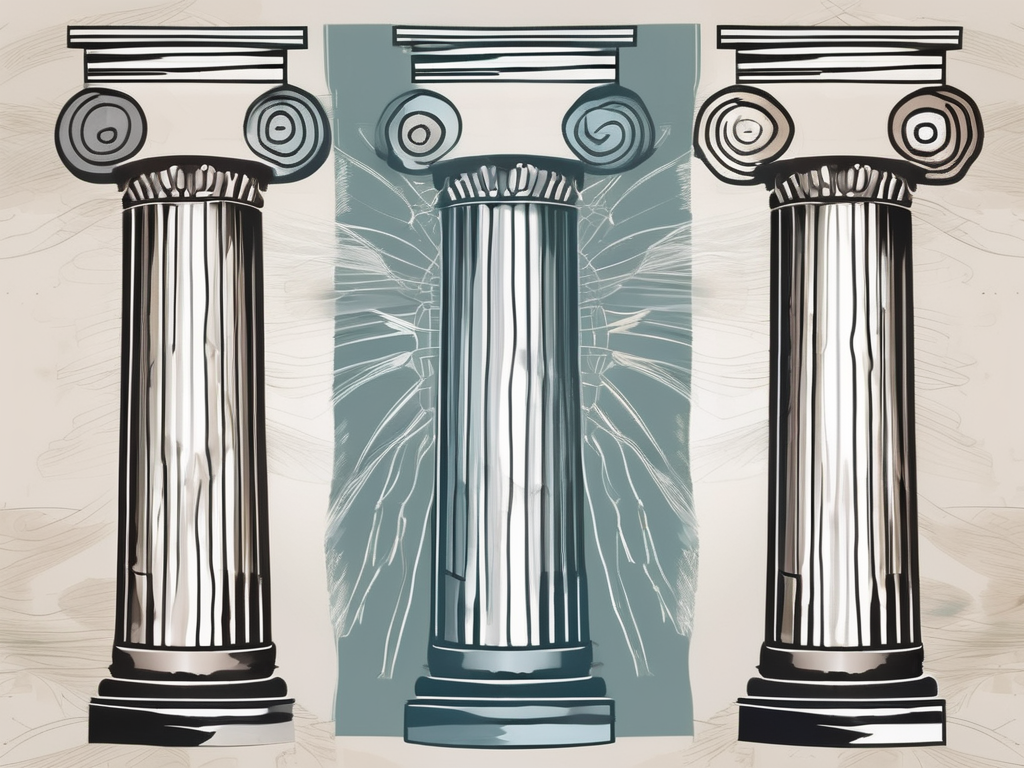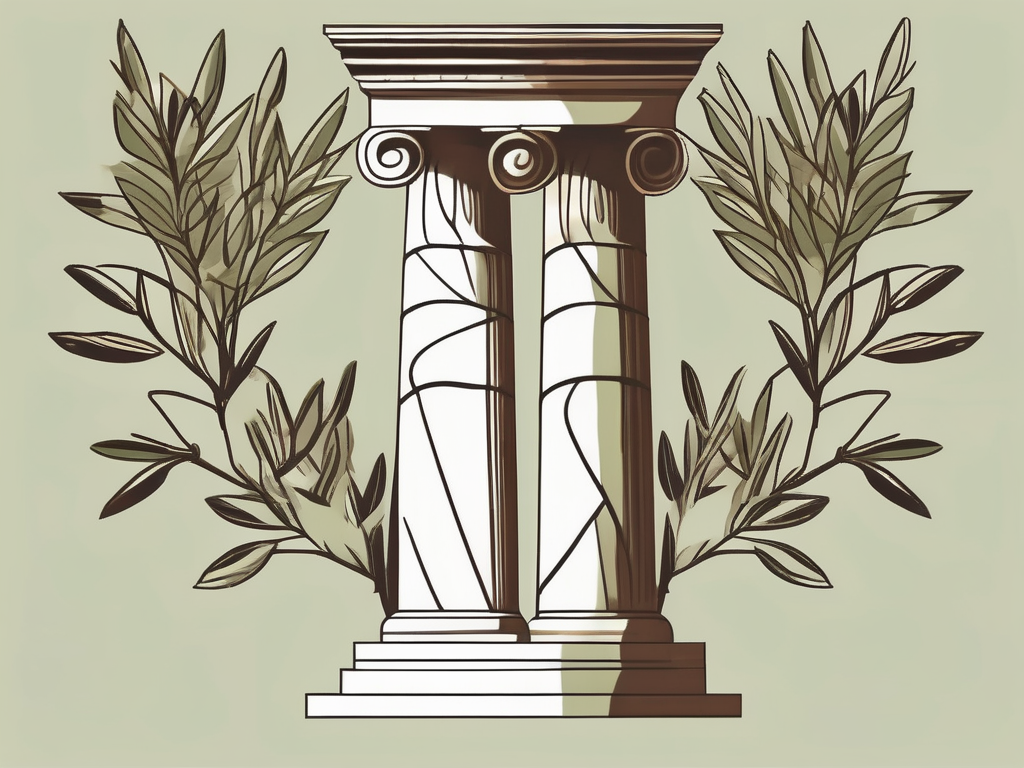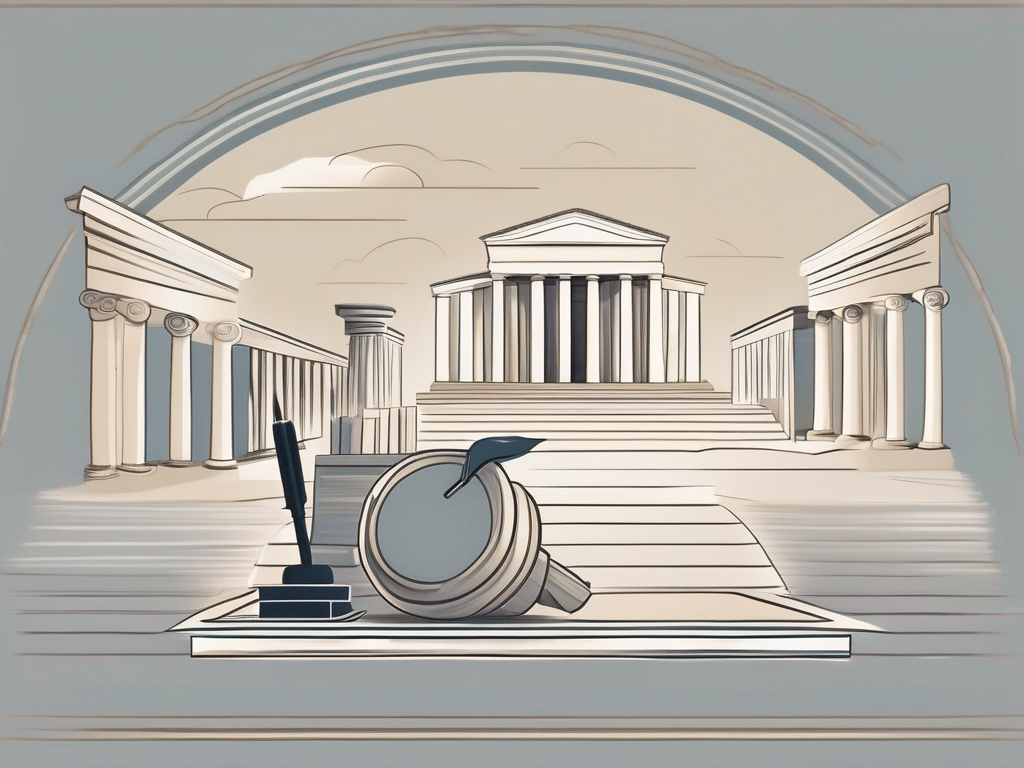Carneades, a prominent figure in Ancient Greek philosophy, is often overshadowed by his more well-known contemporaries, such as Plato and Aristotle. However, delving into the life and philosophy of Carneades is a fascinating journey that unveils a unique perspective on knowledge, skepticism, and belief. In this article, we will explore the life, views, and lasting influence of Carneades, shedding light on this often overlooked philosopher.
Understanding Carneades: His Life and Times
Early Life and Education of Carneades
Born in Cyrene, Libya, in the second century BCE, Carneades received a comprehensive education that laid the foundations for his later philosophical endeavors. Influenced by the great philosophers of his time, Carneades developed a keen interest in critical thinking and the pursuit of truth.
Carneades’ passion for philosophy led him to travel to Athens, the intellectual hub of the ancient world. It was during his time in Athens that Carneades would embark on his philosophical journey, leaving an indelible mark on the history of thought.
While in Athens, Carneades immersed himself in the vibrant intellectual atmosphere of the city. He attended lectures by renowned philosophers, engaging in lively discussions and debates. His insatiable thirst for knowledge drove him to explore a wide range of topics, from logic and rhetoric to ethics and metaphysics.
Carneades’ education was not limited to formal instruction. He sought out mentors and engaged in philosophical dialogues with fellow students, constantly challenging and refining his own ideas. Through these interactions, Carneades honed his critical thinking skills and developed a reputation as a formidable debater.
Carneades in Athens: His Philosophical Journey
Upon arriving in Athens, Carneades became a student of the Academy, founded by none other than Plato himself. However, Carneades did not limit himself to a single school of thought. Instead, he immersed himself in various philosophical traditions, engaging in spirited debates and forging his own unique perspective.
Carneades’ thirst for knowledge and his insatiable curiosity led him to explore diverse disciplines, such as physics, ethics, and metaphysics. This interdisciplinary approach allowed him to synthesize ideas from different schools of thought and develop his own philosophical framework.
Carneades’ time in Athens was not only marked by his intellectual pursuits but also by his involvement in the political and social life of the city. He was known for his persuasive oratory skills, often using his philosophical insights to sway public opinion and influence decision-making.
As a prominent figure in Athenian society, Carneades was invited to speak at various public events and gatherings. His speeches were renowned for their eloquence and depth of thought, captivating audiences and sparking intellectual discourse.
Carneades’ philosophical journey in Athens was not without controversy. His skepticism and ability to argue convincingly for opposing viewpoints often drew criticism from traditionalists. However, his intellectual prowess and dedication to the pursuit of truth earned him respect and admiration from many, including his fellow philosophers.
Throughout his time in Athens, Carneades continued to refine his philosophical ideas and contribute to the development of various branches of thought. His legacy as a philosopher and a thinker remains influential to this day, shaping the way we approach questions of knowledge, ethics, and the nature of reality.
The Philosophy of Carneades
Carneades was a prominent philosopher in ancient Greece, known for his unique views on knowledge and belief. Unlike some of his contemporaries, he rejected the notion of absolute certainty and instead argued that knowledge is inherently fallible. According to Carneades, our understanding of the world is subject to constant revision and refinement, and therefore, we should approach knowledge with skepticism.
Carneades believed that skepticism was not a sign of weakness, but rather a virtue that promotes intellectual humility and open-mindedness. By questioning our beliefs and seeking evidence to support or challenge them, we can better discern truth from falsehood and avoid intellectual dogmatism. This approach encourages a continuous pursuit of knowledge and a willingness to adapt our beliefs in light of new information.
Carneades’ Views on Knowledge and Belief
Carneades’ rejection of absolute certainty was a radical departure from the prevailing philosophical views of his time. While many philosophers sought to establish fixed and unchanging truths, Carneades recognized the limitations of human understanding and the fallibility of our cognitive processes. He argued that our beliefs should always be subject to scrutiny and revision, as new evidence and perspectives emerge.
By embracing skepticism, Carneades challenged the prevailing notion that knowledge can be attained with absolute certainty. Instead, he emphasized the importance of intellectual humility and the recognition that our understanding of the world is always provisional. This approach encourages a more nuanced and critical engagement with knowledge, fostering intellectual growth and preventing the stagnation of thought.
The Concept of Probability in Carneades’ Philosophy
One of Carneades’ most significant contributions to philosophical discourse was his introduction of the concept of probability. In a time when binary thinking dominated, with beliefs seen as either absolute certainties or falsehoods, Carneades proposed a more nuanced approach.
Carneades argued that instead of viewing beliefs as black and white, we should assign them degrees of probability. By acknowledging the uncertainties inherent in our understanding of the world, Carneades emphasized the importance of considering different perspectives and weighing evidence. This probabilistic approach allowed for a more flexible and nuanced understanding of truth, recognizing that our knowledge is always subject to revision and refinement.
Carneades’ concept of probability challenged the prevailing intellectual climate, which often sought to establish fixed and unchanging truths. By introducing a probabilistic framework, he encouraged philosophers and thinkers to embrace uncertainty and engage in a more open-minded exploration of knowledge.
Carneades and the Skeptic School of Thought
The Influence of Skepticism on Carneades’ Work
Carneades, a prominent philosopher of ancient Greece, was deeply influenced by the Skeptic school of thought, which questioned the possibility of attaining certain knowledge. He embraced the Skeptic tradition, adopting its ethos of doubt and suspension of judgment.
Carneades, however, did not adopt a radical form of skepticism that rejected all claims to knowledge. Instead, he espoused a moderate form of skepticism that questioned commonly held beliefs while allowing for the possibility of provisional knowledge and practical decision-making.
This moderate approach to skepticism allowed Carneades to navigate the complexities of knowledge and belief. He recognized that while absolute certainty might be elusive, it was still possible to make informed decisions and engage in practical reasoning based on the available evidence.
Carneades believed that skepticism was not a dogmatic denial of knowledge, but rather a method of inquiry that encouraged critical thinking and intellectual humility. By questioning established beliefs, he sought to uncover hidden assumptions and biases, leading to a deeper understanding of the complexities of the world.
Carneades’ Contributions to Skeptic Philosophy
Carneades expanded and refined Skeptic philosophy, offering compelling arguments and frameworks to support doubt and the examination of knowledge claims. His nuanced approach enabled skeptics to engage in meaningful dialogue and constructive criticism without devolving into a nihilistic rejection of all knowledge.
One of Carneades’ notable contributions was his development of the “method of argumentation,” which aimed to challenge dogmatic beliefs through the presentation of opposing arguments. This method involved constructing persuasive arguments for and against a particular claim, highlighting the limitations and weaknesses of both sides.
Carneades’ method of argumentation was not intended to provide definitive answers but rather to foster intellectual debate and critical thinking. By presenting opposing viewpoints, he encouraged individuals to question their own beliefs and consider alternative perspectives, ultimately leading to a more nuanced understanding of the complexities of knowledge.
Furthermore, Carneades emphasized the importance of probability in assessing the validity of knowledge claims. He argued that while absolute certainty might be unattainable, it is still possible to evaluate the likelihood of a claim being true based on the available evidence. This probabilistic approach allowed for a more nuanced understanding of knowledge, acknowledging that some beliefs are more likely to be true than others.
Carneades’ contributions to Skeptic philosophy laid the groundwork for later thinkers to delve deeper into epistemology and challenge conventional wisdom. His ideas continue to shape philosophical discussions to this day, reminding us of the importance of critical thinking, intellectual humility, and the constant examination of our beliefs.
The Legacy of Carneades
Impact of Carneades’ Philosophy on Later Thinkers
Carneades’ philosophical ideas resonated with subsequent generations of philosophers, leaving a lasting impact on the development of thought. His emphasis on skepticism, open-mindedness, and probabilistic reasoning provided a fertile foundation for thinkers to build upon.
Carneades’ legacy can be seen in the works of renowned philosophers such as David Hume and Immanuel Kant, who drew inspiration from his ideas. His influence extended beyond the realm of philosophy, permeating disciplines such as science, ethics, and politics.
Relevance of Carneades’ Ideas in Modern Philosophy
Even in the twenty-first century, Carneades’ ideas continue to resonate and find relevance. In an era marked by misinformation and the rapid dissemination of unverified claims, his emphasis on critical thinking and evidence-based reasoning serves as a guiding light.
Carneades reminds us of the importance of intellectual humility, encouraging us to question our beliefs and seek evidence before drawing conclusions. By embracing a probabilistic approach to knowledge, we can navigate the complexities of the modern world with a nuanced understanding of truth.
In conclusion, Carneades, often overlooked in the annals of philosophy, offers a unique perspective on knowledge, skepticism, and belief. His life and philosophy serve as a testament to the power of critical thinking, intellectual curiosity, and the pursuit of truth. Delving into the wisdom of Carneades allows us to embark on a journey of self-reflection and intellectual growth, urging us to question, ponder, and explore the world around us.
